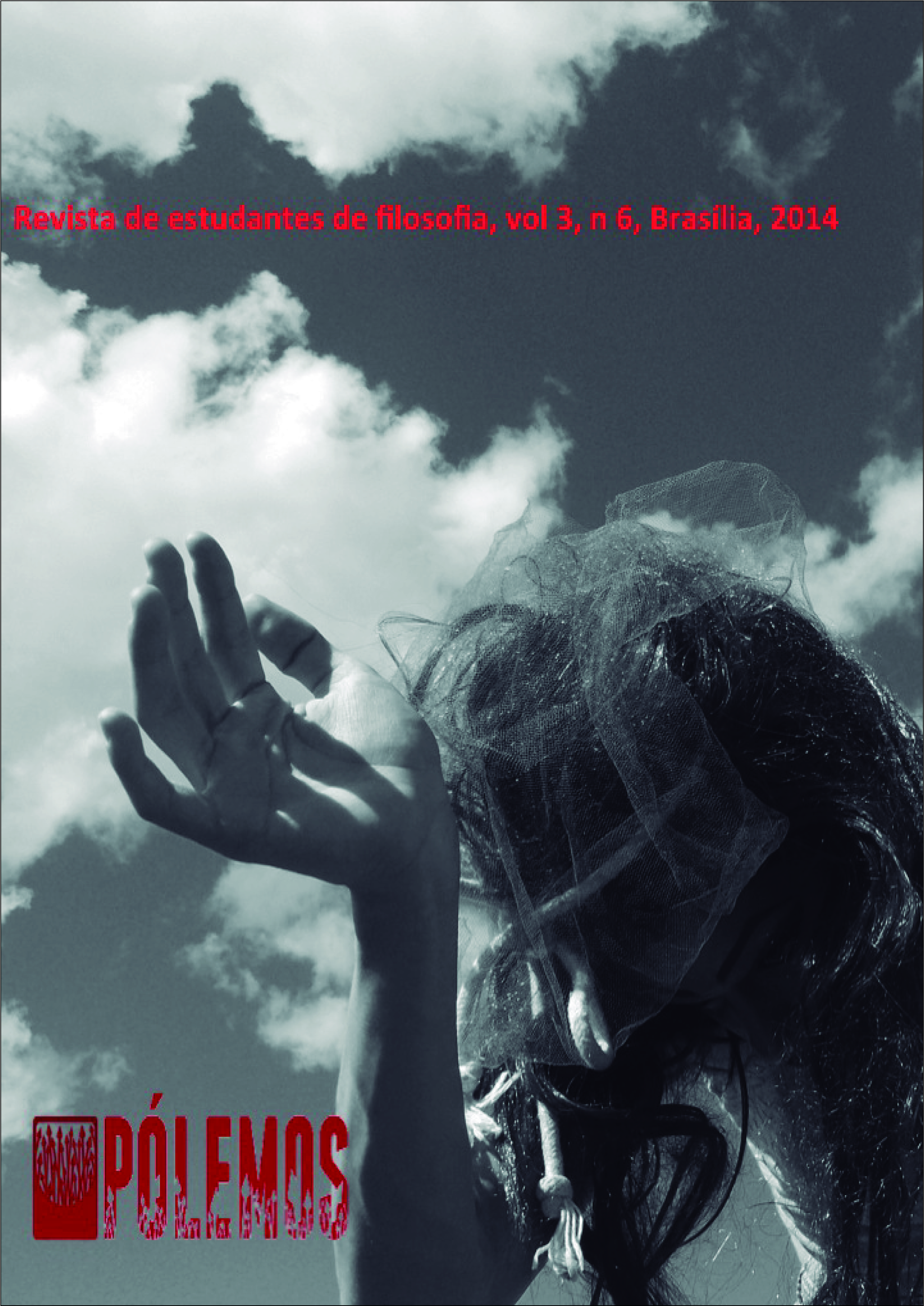ON CERTAINTY IN A PRIORI SYNTHETIC JUDGMENTS
DOI:
https://doi.org/10.26512/pl.v3i6.11658Keywords:
Certainty. Kant. Necessity. Synthetic a priori judgments.Abstract
The present paper intends to defend that one of properties of the synthetic a priori judgments is to have certainty in different degrees. It is necessary to understand the ‘complete certainty’ from derivation of the antagonism of two fundamental modal concepts: necessity and contingency. The first concept, the necessity, is derived of apodictic modality of judgments. In Kant’s philosophy, the synthetic a priori judgments have the security of their a priori origin more the extensive character. Any discipline to ascend to the status of science should to produce such judgments; judgments endowed of security and able to anticipate the experience. Theoretical sciences as pure physics and pure mathematics that produce synthetic a priori judgments are sciences endowed in their judgments with these properties. Finally, inside of the proposed finality, this paper aims to show how is possible inside Kant’s project the certainty in synthetic a priori judgments.
Downloads
References
ALLISON, Henry E. Kant's Transcendental Idealism.New Haven: Yale University Press, 2004.
FAGGION, Andrea Luísa Bucchile. Dedução Transcendental e esquematismo transcendental: o problema da possibilidade e da necessidade de constituição de objetos em Kant. 307f (Doutorado em Filosofia) – Instituto de Filosofia e Ciências Humanas, Campinas, 2007.
FREGE, Gottlob. Fundamentos da Aritmética.Trad. Luíz Henrique dos Santos. São Paulo: Abril, 1974.
HÖFFE, Otfried. Kant’s ‘Critique of pure reason’:The foundation of modern philosophy.New York: Springer, 2010.
HUME, David. An Enquiry concerning human understanding.Oxford: Oxford University Press, 1999.
KANT, Immanuel. Crítica da Razão Pura.Trad. Fernando Costa Mattos. Rio de Janeiro de Janeiro: Vozes, Bragança Paulista, SP: Editora universitária São Francisco, 2013.
KANT, Immanuel. Prolegômenos a toda metafísica futura. Trad.Tania Maria Bernkopf. São Paulo: Abril, 1980.
KATS, J. Analyticy, Necessity, and the Epistemology of Semantics.In Philosophy and Phenomenological Research. Vol LVII. Nº 1, March 1997.
KEMP, Smith. N. A Commentary to Kant’s ‘Critique of Pure Reason’. London: Macmillan and Co., 1918.
KRIPKE, Saul. Naming and Necessity. Oxford: Basil Blackwell, 1990.
LOPARIC, Zeljko. A Semântica Transcendental de Kant. Campinas: UNICAMP, Centro de Lógica, Epistemologia e História da Ciência, 2005.
LEIBNIZ, Gottfried Wilhelm. Novos Ensaios sobre o Entendimento Humano.Trad. Luíz João Barúna. São Paulo: Nova Cultura, 2000.
PALMQUIST, Stephen. A Priori Knowledge in Perspective: Naming, Necessity and the Analytic a Posteriori. In: The Review of Metaphysics, 1987.
PATON, H. J.Kant's Metaphysic of Experience: a Commentary on the First Half of the Kritik der reinen Vernunft. London: Macmillan, 1936.
QUINE, W.V.O. Two dogmas of empiricism. In From a Logical Point of View Harvard University Press, 1961.
TUGENDHAT, Ernst; WOLF, Ursula. Propedêutica Lógico-Semântica. Trad. Fernando Augusto da Rocha Rodrigues. Rio de Janeiro: Vozes, 2005.
WOLFF, Cristian. Philosophia Prima sive Ontologia. Frankfurt: 1729.
Dicionários
ABBAGNANO, Nicola. Dicionário de Filosofia. Trad. Alfredo Bosi. São Paulo: Martins Fontes, 2007.
CAYGILL, Howard. A Kant dictionary. Oxford: Blacwell publishers, 2000.
Downloads
Published
Issue
Section
License
Copyright (c) 2016 Pólemos

This work is licensed under a Creative Commons Attribution-NonCommercial-NoDerivatives 4.0 International License.
Todos os trabalhos que forem aceitos para publicação, após o devido processo avaliativo, serão publicados sob uma licença Creative Commons, na modalidade Attribution-NonCommercial-NoDerivatives 4.0 International Public License (CC BY-NC-ND 4.0). Esta licença permite que qualquer pessoa copie e distribua a obra total e derivadas criadas a partir dela, desde que seja dado crédito (atribuição) ao autor / Ã autora / aos autores / às autoras.


